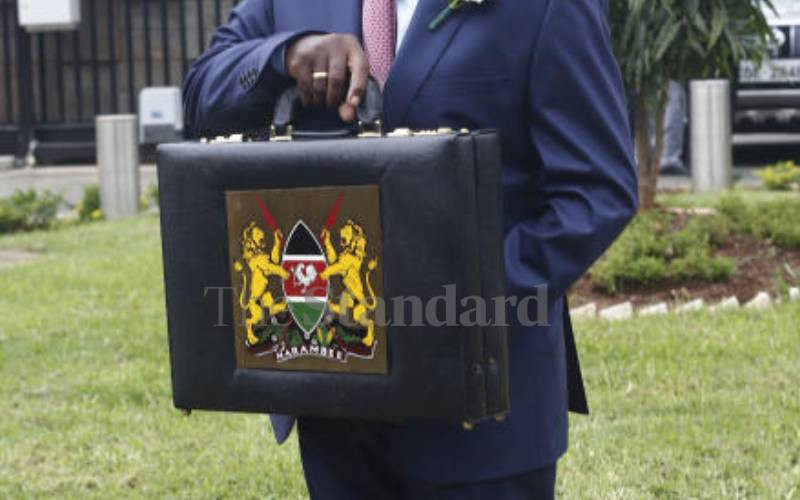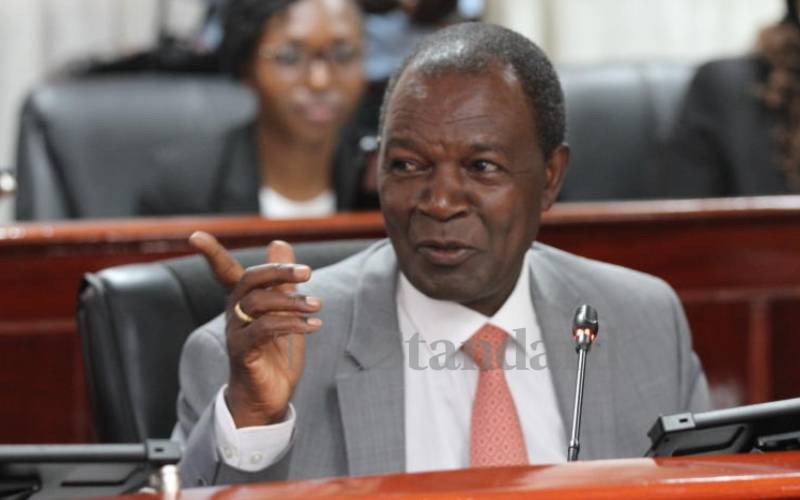
Seven years ago, I wrote an academic term paper about the promise some African nations were showing within the global financial markets. Kenya and Ghana were my jewel crowns after successfully issuing Eurobonds that seemed to really excite global lenders.
Each country's bond had hugely been oversubscribed necessitating subsequent tap sales that were equally oversubscribed. The two economies promised new frontiers for global lenders within the East and West African regions. These successes were backed by upgrades into lower-middle-income statuses, effectively moving them from the least developed country clusters.
While the middle-income status may have opened the way for the two economies to stand on their own in global financial markets, it also effectively locked them out from the pool of eligibility to key concessional development benefits, grants and debt waivers. Theoretically, the world presumes the country has the ability to manage its own affairs, meet debt obligations and even contribute materially towards the international development agenda.
However, the questions that are emerging now are: did these two economies jump the gun? Was their newfound status based on credible data and economic indicators? Or did their respective policymakers and political leaders understand the responsibilities and obligations that came with the middle-income tag?
Reality check
Since January this year, Ghana has been going through a very painful sovereign debt restructuring process as a condition imposed by the International Monetary Fund (IMF) in order to qualify for economic bailouts. This is after the country defaulted on most of her foreign debt repayments in December 2022.
Notable prescription is what has been trending as 'Haircuts' that involves exchanging existing high-interest and maturing debt obligations with new low-interest and longer-maturity debt instruments. For many of the bondholders, they have no other option for they understand the alternative is a complete default. The choice left is to negotiate with the government and see what they can salvage from an otherwise very bad situation.
However, what is left for debate is the medium and long-term implication of this ugly state of things to Ghana's ability to access financing from both domestic and international markets. What is without a doubt is that things must radically change for the country's macroeconomic and fiscal policies if a sustainable solution is to be achieved.
Sadly, as the country goes through such a crisis, Reuters news outlet reported this week that the country's Minister for Water and Sanitation, Cecilia Abena Dapaah resigned over public outcry over huge foreign and local currency-denominated cash that was allegedly stolen from her house by two domestic workers. It is reported that two of her former workers were charged in court on July 19 for allegedly stealing an estimated US$ 1 million, 300,000 Euros and millions in the local currency Cedi. While she claimed innocence in her resignation, Ghanaians were left baffled as to how and why a government minister would be hoarding such huge cash in her house.
On her part, Kenya has been unable to bid for a fourth Eurobond lined up for issue over the past two successive budget cycles as part of the government's external financing strategy. This may partly be attributed to the consistent decline in the country's credit rating that downgrades the confidence of investors. Since May 2020, the three globally well-established rating agencies, Standard &Poor (S&P), Moody's and Fitch have either reclassified the country's credit rating downwards or maintained its outlook as negative. The most recent was Fitch's negative review and affirming a 'B' rating on July 20.
The actual debt numbers reported at the close of the fiscal year on June 30, 2023, look scary for the country's debt sustainability. According to the National Treasury's actual revenue and expenditure statement for the year, the debt expense was Sh1.161 trillion. This translates to about 59.2 per cent of the actual tax revenue reported as Sh1.961 as of the same date.

While Kenya Kwanza blames the sorry state of affairs on the predecessor administration, a statement by the National Treasury posted on 20th July 2023 indicates the KK government has accumulated a net of about Sh680 billion. This includes a net of Sh418.99 billion in actual domestic debt and net external debt of US$1.8 billion. The external debt includes US$1.09 billion in project loans, US$589.43 billion and US$1 billion from IMF and World Bank respectively, and US$800 million in syndicated loans.
For the avoidance of doubt, net debt accumulation means the amount excludes money borrowed to retire maturing loan obligations. For instance, the debt statement referred to above reports a total of US$1.67 was used to pay maturing principal repayments. That explains why the overall debt borrowed in the fiscal year 2022/23 has been reported at about Sh1.3 trillion in certain sections of the press.
Painful Experience
Right from the onset, there are only three ways of dealing with a country's debt sustainably: one, fiscal responsibility, that is, living within your means; two, paying up maturing obligations to preserve credit standing and avoid expensive penalties and fines; and three, fixing the economy to grow faster than debt so as to reduce debt to GDP ratio and generate adequate revenues.
The IMF proposes that a good public debt management framework must find an appropriate balance among the macroeconomic policy, meeting desired revenue targets at acceptable risk, and access credit at the lowest cost possible. Debt restructuring must be an option of last resort for it entails a complex process demanding agreement among domestic and foreign creditors. Typically, the mechanisms available for a debt restructuring are an extension of maturity duration, reorganisation of the debt composition or debt-to-equity swaps.
The United Nations Department of Economic and Social Affairs in a statement on the complexities countries face with debt restructuring in 2021 identifies five main problems. First, there currently lacks clear rules and sovereign debt restructuring framework that countries can adapt to navigate this painful process. Second, geographically dispersed creditors and bondholders have incentives to hold out from debt restructuring deals that make the negotiations very difficult.
Third, sovereign debts lack an established seniority structure that in many cases leads to debt dilution and more indebtedness, unlike private debts that often have a pegging order. Four, countries going through debt restructuring generally lack access to interim private finance. This complicates their liquidity making recovery much more difficult and slow. Finally, most countries try to postpone the beginning of a difficult, yet unavoidable debt restructuring process.
Typically, this means a country's bureaucratic and political elites live in denial even when the indicators point to a worse or worsening situation. As a consequence, they fail to take remedial corrective actions while the tides are still in their favour.
Ultimately, however, it becomes a sovereign duty for any nation to build inhouse human capability that can navigate through the complex world of financial markets; balance between macroeconomic and fiscal outcomes; and still remain responsive to the local socio-political environment. That's what sets great nations apart from the rest of the crowd.
 The Standard Group Plc is a multi-media organization with investments in media
platforms spanning newspaper print
operations, television, radio broadcasting, digital and online services. The
Standard Group is recognized as a
leading multi-media house in Kenya with a key influence in matters of national and
international interest.
The Standard Group Plc is a multi-media organization with investments in media
platforms spanning newspaper print
operations, television, radio broadcasting, digital and online services. The
Standard Group is recognized as a
leading multi-media house in Kenya with a key influence in matters of national and
international interest.



